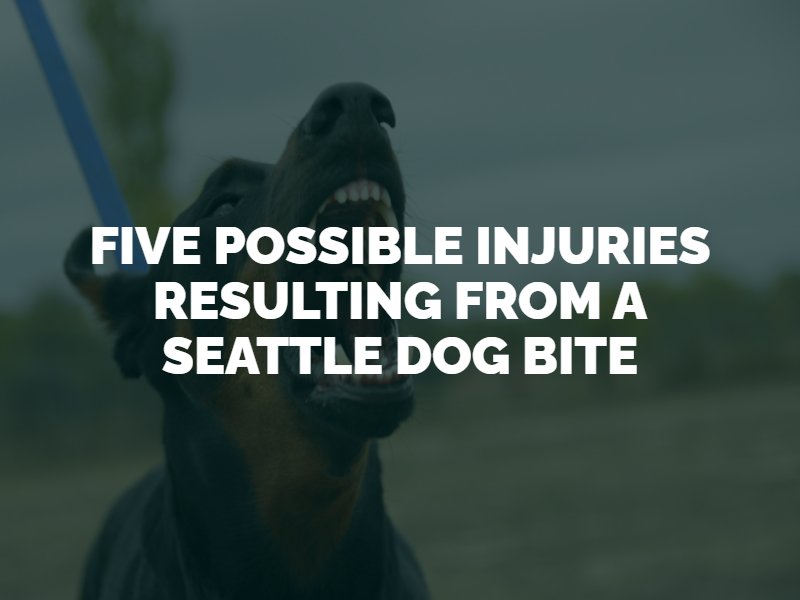Millions of Americans own dogs and most are beloved family members. However, dogs are also animals with sharp teeth and motives we cannot always understand or anticipate. No one is fully prepared for an animal attack—especially from “man’s best friend.” Some dogs are poorly trained, purposely trained for aggression, or attack when sick, scared, or injured. In the event you have been bitten by a dog, call our dog bite lawyers in Seattle today.
Most states hold pet owners strictly liable for consequences to the victim. The bite victim only needs to show that they were lawfully on an individual’s property or in a public place when the attack occurred, regardless of the dog’s history.
What types of injuries most commonly result from dog bites in Seattle and what medical treatment do these injuries require?

Dogs have sharp teeth that work like serrated knives to tear apart meat. They also have long, pointed canine teeth that cause puncture wounds. Medical providers classify dog bite severity partly by the depth of punctures. This is called the Ian Dunbar Dog Bite Scale. Level three and four puncture wounds are at least as deep as half the length of the dog’s canine teeth, while level one and two wounds only cause abrasions without punctures.
Dog bite puncture wounds are painful and serious. Medical treatment may require stitches to close the wounds and treatment with topical and oral antibiotics to prevent or treat infection from bacteria on the dog’s teeth. The dog is typically retained and tested for rabies. A positive result is uncommon but requires the bite victim to undergo preventative rabies treatments.
Some attacking dogs release their victim after biting into the skin as a warning, but an enraged, frightened, or aggressive dog locks its jaws down on the puncture bites and then begins shaking its head back and forth. This is a behavior meant for defense, aggression, and tearing apart meat. When a dog shakes its head. the punctures become lacerations or cuts. Lacerations may be shallow and primarily on the skin’s surface, or they could be deep, lacerating not only the skin but the fatty layer beneath. The deepest dog bites tear the skin, fat, and muscle, causing severe trauma that requires surgical repairs to restore the body part’s function and appearance. Both shallow and deep lacerations also require antibiotic treatment to prevent infection.
In addition to sharp teeth, dogs have powerful jaws. When a dog bites, the pressure of the dog’s clamping jaw causes contusions (bruises) and inflammation in the area as well as punctures and lacerations. Dog bite victims commonly suffer from serious bruises and damage to the soft tissue in the area causing sprains, torn ligaments, and deep contusions. Bruises take time to heal and may require cold compresses to reduce inflammation. Sprains and torn ligaments require more serious medical treatment to stabilize the area and support healing.
In the most serious dog attacks, pressure and vigorous shaking from the biting dog can break the victim’s bones, particularly arm, wrist, finger, foot, and ankle bones. The dog attack can also knock a victim down, causing a broken hip. This is especially common in elderly attack victims. Broken bones require medical treatment and take a long time to heal.
A dog’s sharp teeth and tearing bites cause serious damage to the skin and underlying tissue. This results in significant scarring. When a dog bites the victim’s face, the scars can leave them disfigured. Serious scarring and disfigurement may require corrective surgery to restore function and appearance. Facial injuries are most common in child dog-bite victims because their faces are closer to the level of the dog’s teeth compared to adults.
In the worst cases, dog bites cause traumatic limb loss or death. In the event a dog bite lead to a loved one’s death, contact our Seattle wrongful death attorney to learn more about what actions you can take in your case.
A dog bite victim can recover compensation for damages such as medical costs, future medical care costs, lost wages, pain and suffering, and emotional trauma. The dog owner’s property liability insurance covers this type of compensation.